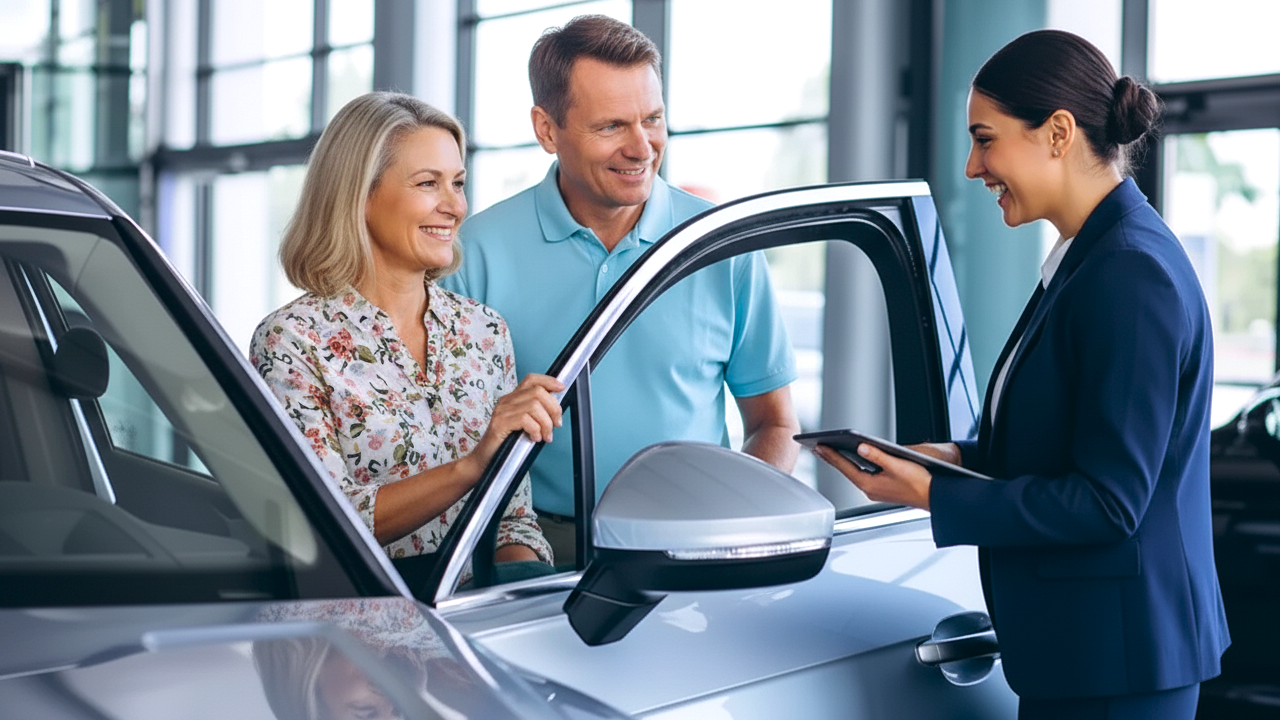A Step-by-Step Guide to Buying a Car in Cyprus
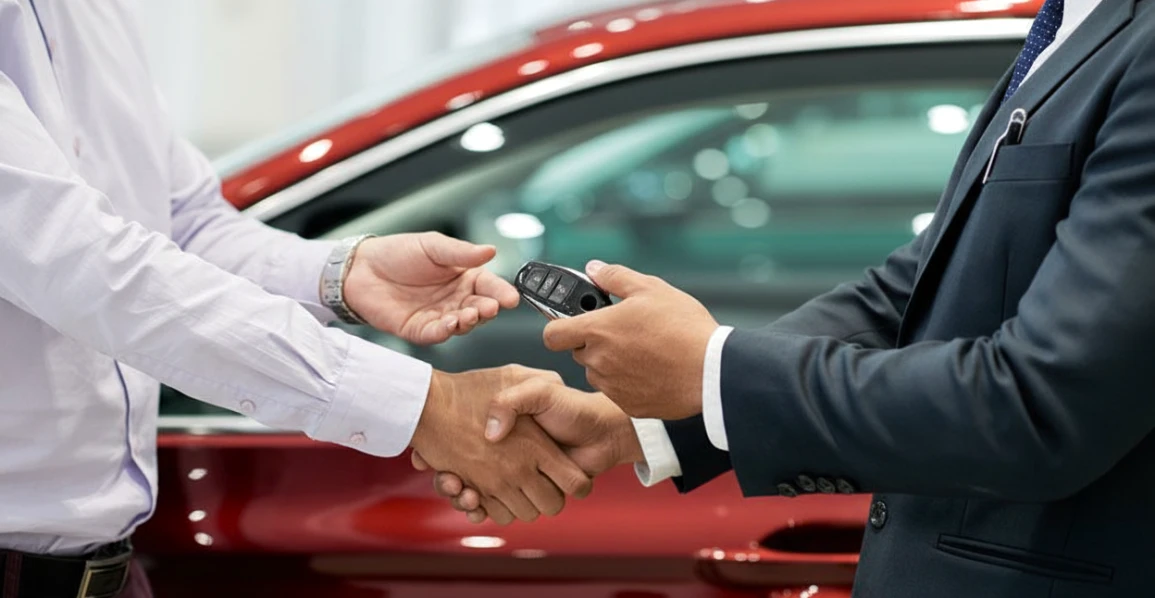
Owning a car in Cyprus is an essential part of daily life for many residents. While public transportation is available, it is often limited, making personal vehicles the most convenient and efficient mode of transportation. Whether commuting to work, exploring the island, or running errands, having a car makes life much easier.
For those considering buying a car in Cyprus, it's essential to understand the local market, the paperwork involved, and the options available. From purchasing new cars to exploring the used car market, there are many things to consider when navigating the process. Additionally, finding reliable options is crucial — that's where platforms like BuyCars.cy come into play, offering a variety of vehicles with helpful guidance for smooth transactions.
This article will guide you through the essential steps for buying a car in Cyprus, from understanding the local market to ensuring proper documentation and registration. Whether you're looking for a brand-new vehicle or a pre-owned gem, this guide will help make the process as easy as possible.
Local Features of Buying a Car in Cyprus
Overview of the Car Market in Cyprus
The car market in Cyprus offers various new and used vehicles catering to different preferences and budgets. New cars tend to be more expensive due to import duties and taxes, while the used car market offers more affordable options. However, the used car market in Cyprus has unique characteristics and challenges, making it essential for buyers to be cautious and informed.
- New vs. Used Cars. New cars on the island are typically imported from manufacturers around the world. While Cyprus has a high demand for new vehicles, especially from popular manufacturers like Volkswagen, Toyota, and BMW, they come with higher prices due to import duties and VAT. On the other hand, the used car market in Cyprus is thriving, with many local dealers and individuals selling vehicles. Used cars are often cheaper, but buyers must pay attention to their condition, mileage, and history.
- Popular Car Brands. Some of the most popular brands on the island include Toyota, Nissan, Mercedes-Benz, BMW, and Volkswagen. These brands are well-represented in both the new and used car markets, with strong after-sales support and availability of spare parts. Many Cyprus residents prefer these brands due to their reliability, fuel efficiency, and relatively low maintenance costs.
- Cost of Car Maintenance in Cyprus. Maintaining a car in Cyprus is relatively straightforward due to the availability of spare parts, service centers, and experienced mechanics. Car servicing costs can vary depending on the brand, with luxury cars like BMW and Mercedes tend to be more expensive to maintain than more affordable brands like Toyota. Regular maintenance includes oil changes, tire replacements, and brake inspections. It is essential to ensure that a car is regularly serviced to avoid expensive repairs down the line.
Process of Buying a Car in Cyprus
Buying a New Car
When considering buying a new car in Cyprus, the process can be relatively straightforward, but there are several factors to remember. Here are the key steps involved:
1. Choosing a Dealer:
- When purchasing a new car in Cyprus, it is important to choose a reputable authorized dealer. Authorized dealers typically offer the full range of the manufacturer's vehicles, warranties, and after-sales services. Ensure the dealership is licensed and provides support for registration and insurance.
- Many dealers offer financing options and trade-in services, making purchasing smoother.
2. Advantages of Buying New:
- Warranty. New cars come with a manufacturer warranty, varying from 3 to 7 years, depending on the make and model. This warranty covers a range of repairs and defects, providing peace of mind.
- Custom Options. Buying new allows you to customize the vehicle according to your preferences, including color, features, and specifications.
- Latest Technology. New cars often come equipped with the latest features, technology, and safety systems, such as advanced driver assistance systems (ADAS), infotainment upgrades, and fuel-efficient engines.
3. Disadvantages of Buying New:
- Higher Price. New cars in Cyprus are more expensive due to import duties and taxes. They also depreciate faster than used vehicles, which means you may lose a significant portion of your investment in the first few years.
- Limited Bargaining Power. Since the manufacturer and dealers set the prices of new cars, there's less room for negotiation.
Buying a Used Car
Buying a used car in Cyprus can offer substantial savings, but it also comes with more risks. Here’s what you need to know before purchasing a used vehicle:
1. Advantages of Buying Used:
- Lower Price. Used cars are typically much cheaper than new ones, making them an appealing option for many buyers. You can find a high-quality used car for a fraction of the price of a new one.
- Less Depreciation. Since the car has already depreciated, you won't face as steep a drop in value as you would with a new car. This can be an attractive option for long-term ownership.
2. Disadvantages of Buying Used:
- No Manufacturer Warranty. Most used cars no longer have a manufacturer warranty, so you'll have to rely on the dealer's warranty (if offered) or third-party warranty coverage. You may have to pay for repairs and maintenance out of pocket.
- Unknown History. Used cars may have hidden issues that are not immediately apparent, such as accident history, engine problems, or irregular maintenance.
3. Things to Consider When Buying a Used Car:
- Inspect the Car. Always inspect the car thoroughly or have a mechanic do it for you. Look for signs of wear, rust, or damage, and check the tires, engine, and suspension.
- Check the Mileage. Lower mileage is generally better, but don't assume a low-mileage car is problem-free. High-mileage vehicles can still be in excellent condition if they've been well-maintained.
- Check the Car's History. Request the vehicle's history report to verify that it hasn't been in significant accidents or suffered severe damage. You can also check Cyprus's car registration to ensure the car is free of legal or financial issues.
4. Common Risks with Used Cars and How to Avoid Them:
- Hidden Damage. Some cars may have been repaired poorly or hidden behind a fresh coat of paint. Always take the car for a professional inspection before finalizing the deal.
- Outstanding Debt. Some used vehicles may have an outstanding loan or finance agreement. Before purchasing, you can check the car registration in Cyprus for any existing debts or legal encumbrances.
- Unclear Ownership History. Ensure the seller provides all necessary documentation proving they are the rightful owner. Avoid buying vehicles with incomplete or suspicious paperwork.
Necessary Documents for Buying a Car in Cyprus
When buying a car in Cyprus, whether new or used, several important documents are required to ensure the purchase is legally binding and the vehicle is registered correctly. Here is a breakdown of the documents needed to buy a car in Cyprus.
Documents Needed for Purchasing a Car
- Identification. Both the buyer and the seller must present a valid form of identification, such as a passport or Cypriot ID card. If you're a foreigner purchasing a car, your passport and proof of residence (such as utility bills or rental agreements) will be necessary.
- Proof of Address. In most cases, you must provide proof of your address in Cyprus. This could be a utility bill, bank statement, or rental agreement dated within the last three months.
- Sales Agreement. Both parties should sign a sales agreement outlining the details of the transaction, including the price, vehicle details (VIN, registration number), and the agreed terms for both new and used cars. This document serves as proof of purchase.
- Vehicle Registration Documents. The vehicle registration document (often called the "log book") is essential when transferring car ownership. It contains important details such as the vehicle's registration number, make, model, and the current owner's name.
- Proof of Payment. A receipt of payment for the car purchase is crucial. This shows that the payment has been made and the transaction is complete. The financing agreement should also be provided if the car is purchased through financing.
The Ownership Transfer Process
- TOM9 Form. The TOM9 form is an essential document for transferring the ownership of a vehicle in Cyprus. It must be filled out by both the seller and the buyer and submitted to the Department of Road Transport. This form includes the buyer's and seller's information, vehicle details, and the agreed sale price. Once processed, the Department of Road Transport will update the car's registration to reflect the new owner.
- Car Registration Cyprus. It's essential to check that the car is registered correctly and that no outstanding issues exist, such as unpaid taxes or fines. You can verify the registration details through the Department of Road Transport or platforms like BuyCars.cy, which can help guide you through the process and ensure all documents are in order before finalizing your purchase.
- Insurance Documents. To register the vehicle, you must provide proof of car insurance. You are required by law to have at least third-party liability insurance for any car registered in Cyprus. Shop around for insurance quotes to find the best coverage for your needs.
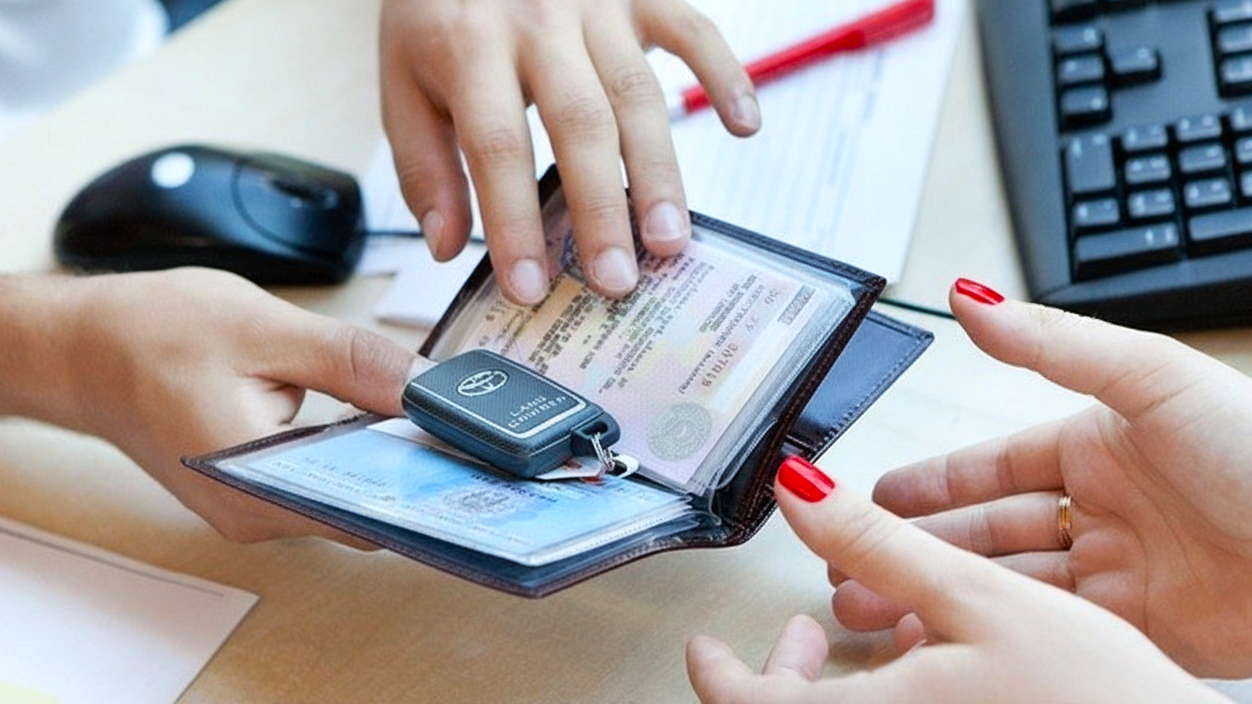
Taxes and Fees When Buying a Car in Cyprus
When purchasing a vehicle in Cyprus, buyers must know the various taxes and fees associated with registering the car and maintaining ownership. These costs can vary depending on the type of vehicle, its engine size, and other factors. Below are the key taxes and fees to remember when buying a car in Cyprus.
Road Tax
Road tax is one of the most important costs to consider when owning a car in Cyprus. It is calculated based on the engine size (cc) and is due annually.
How is Road Tax Calculated?
- The road tax for a car is calculated using a formula that considers the engine capacity (measured in cubic centimeters, cc). The larger the engine, the higher the tax.
- For example, cars with engines up to 1,000 cc are subject to a lower road tax, while vehicles with larger engines (over 2,000 cc) will face higher taxes.
Example:
- A car with an engine size of up to 1,000 cc might pay around €40 per year.
- A car with an engine size over 2,000 cc could pay upwards of €200 or more annually.
Payment Process. Road tax is typically paid online through the official government website or at local post offices. Paying this tax on time is essential to avoid fines and penalties.
Registration Fees
Registration fees are also applicable when purchasing a vehicle in Cyprus. These fees are associated with registering the car in your name with the Department of Road Transport.
- First-Time Registration. If the vehicle is being registered for the first time in Cyprus, the registration fee will be determined based on its engine size and emissions. Depending on these factors, the fee can range from €30 to €200.
- Transfer of Ownership. When transferring ownership of a car, the buyer must pay a registration transfer fee. This fee is typically small, ranging from €20 to €50, and must be paid when submitting the TOM9 form to complete the ownership transfer.
VAT (Value-Added Tax)
- VAT on New Cars. New cars sold in Cyprus are subject to Value-Added Tax (VAT), which is currently set at 19%. This tax is included in the price of the vehicle when purchasing from a dealership.
- VAT on Used Cars. Used cars bought from private sellers are generally not subject to VAT. However, if a used car is purchased from a dealer, VAT may still apply to the selling price. It is essential to confirm with the dealer whether VAT is included in the cost of a second-hand vehicle.
Other Fees
- Insurance. As mentioned earlier, you are required by law to have at least third-party liability insurance in Cyprus. The insurance cost depends on various factors, including the car’s make, model, engine size, and the driver’s experience. Expect to pay anywhere from €300 to €1,000 or more annually for insurance.
- MOT (Technical Inspection): purchasing a used car must have a valid MOT (Ministry of Transport) certificate, which confirms the vehicle has passed its technical inspection. The MOT fee is typically around €30 to €50, depending on the vehicle’s age and condition.
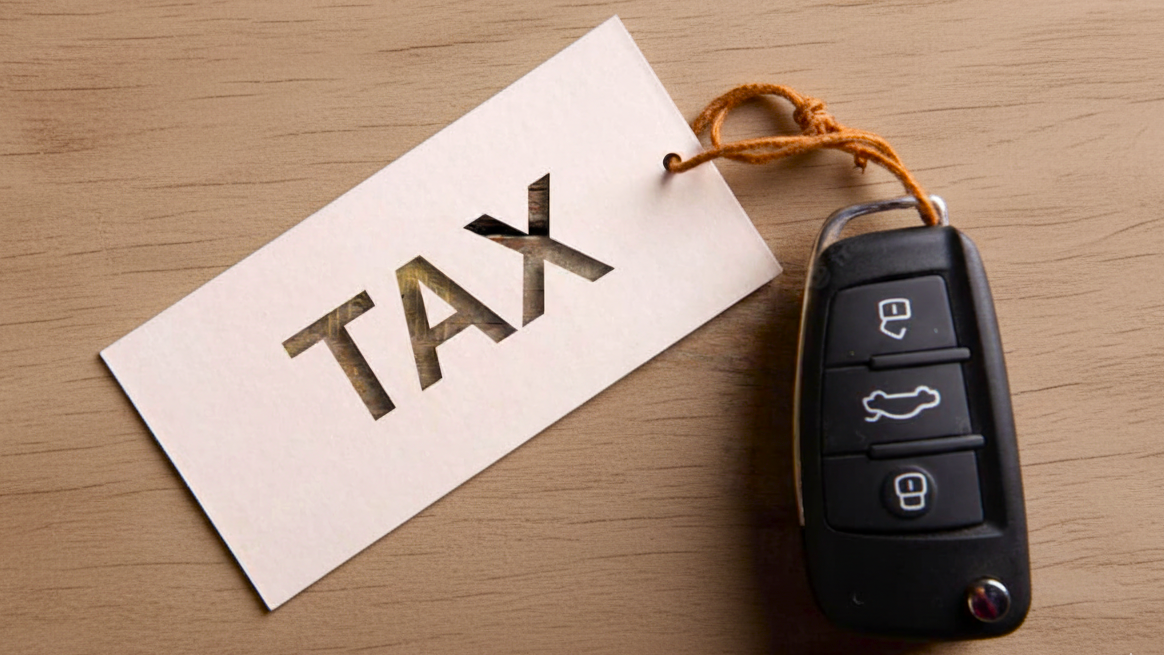
Insurance for Car Registration in Cyprus
When buying a car in Cyprus, valid car insurance is a mandatory requirement before you can register your vehicle with the Department of Road Transport. Different types of car insurance policies are available, and choosing the right one is crucial for ensuring you're properly covered in the event of an accident, theft, or damage.
Mandatory Insurance Requirements
In Cyprus, third-party liability insurance is the minimum legal requirement for all vehicles. This type of insurance covers any damages or injuries you may cause to others, vehicles, or property while driving your car. It does not cover damage to your vehicle or injuries to yourself.
Third-Party Liability Insurance. This is the most basic type of coverage and is legally mandatory. It covers:
- Damage to other vehicles or property caused by your car.
- Injuries to pedestrians or passengers in other vehicles.
- Medical expenses and legal costs associated with accidents.
Additional Types of Insurance
While third-party liability insurance is mandatory, many car owners go beyond the minimum requirements to ensure they are fully covered. Some additional types of insurance to consider include:
- Comprehensive Insurance. Comprehensive coverage is a more extensive form of car insurance that covers both third-party liability and damage to your vehicle, regardless of who is at fault. This type of insurance is ideal for new and high-value cars, as it protects you against various incidents, including theft, vandalism, and natural disasters.
- Collision Insurance. This type of insurance specifically covers damage to your vehicle in the event of an accident, even if you are at fault. Collision insurance can benefit drivers who do not want to pay for repairs out of pocket in case of a crash.
- Theft and Fire Insurance. This policy covers your vehicle against theft, attempted theft, and fire damage. It is typically included in comprehensive policies but can be purchased as a standalone policy.
- Personal Accident Insurance. Personal accident coverage compensates for injuries sustained by the driver and passengers in an accident. It can cover medical expenses, hospitalization, and, in some cases, funeral expenses.
How to Choose the Right Insurance Provider
Choosing the right insurance company is an essential step in the car-buying process. Here are some tips to help you make an informed decision:
- Compare Quotes. Compare quotes from multiple insurance companies to find the best rates. Many companies offer online tools to generate instant quotes, helping you assess your options easily.
- Look for Good Customer Service. Research the insurance provider's reputation, focusing on its customer service, claims process, and financial stability. You want to ensure that your chosen company will be responsive and reliable in case of a claim.
- Understand the Coverage. Carefully review each policy's details, ensuring you understand what is covered and what is not. Pay attention to the excess (deductible) amounts and any exclusions that may apply to your coverage.
- Consider Your Driving Needs. You may opt for more comprehensive coverage if you drive frequently or live in an area with a high risk of accidents or theft. On the other hand, if your car is older and has a lower value, basic third-party liability insurance might be sufficient.
Process of Insuring Your Car
Once you've selected your insurance provider and policy, you will need to provide the following information to complete the insurance process:
- Vehicle details. Make, model, year, and registration number of the car.
- Driver information. Personal details, including your age, driving history, and any prior claims.
- Payment. The insurance premium can typically be paid annually or in installments, depending on the insurance provider.
Once your payment is processed and the policy is active, you will receive your insurance certificate and policy documents, which you must present when registering your car with the Department of Road Transport.
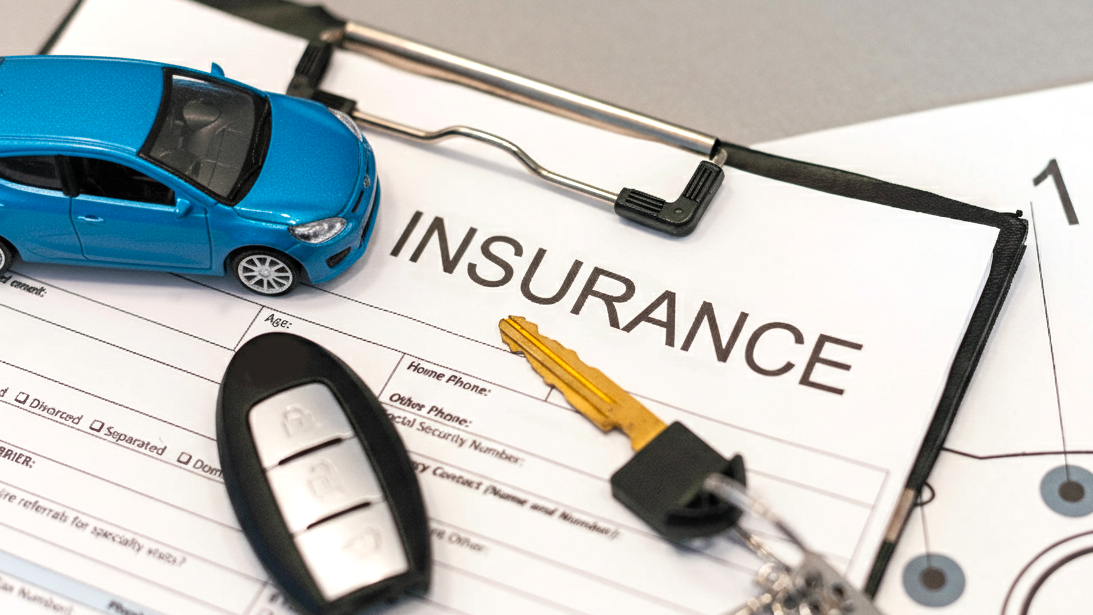
Vehicle Regisration and MOT (Technical Inspection)
Once you've purchased your car and arranged insurance, the next step is to register your vehicle with the Department of Road Transport (DRT) in Cyprus. Additionally, buying a used vehicle must pass a Ministry of Transport (MOT) test to ensure it meets the required safety and environmental standards.
Process of Registering a Car in Cyprus
1. Documents Required for Registration. To register your vehicle in Cyprus, you'll need to provide the following documents:
- Proof of ownership. This includes the vehicle's registration document (logbook) and the completed TOM9 form (used for transferring vehicle ownership).
- Proof of insurance. As previously discussed, you must have valid car insurance before registering.
- Identification. A valid form of ID, such as a passport or Cyprus ID card, and proof of address in Cyprus.
- Payment for registration. The registration fee will vary depending on the vehicle's engine size and emissions.
2. Where to Register. You can complete the registration process at the Department of Road Transport or local Citizen Service Centers (KEP). It's advisable to check the operating hours and make an appointment in advance, as registration can sometimes involve waiting times, especially during busy periods.
3. The Role of the TOM9 Form. The TOM9 form is essential for transferring ownership of a vehicle in Cyprus. Both the buyer and the seller complete this form, which includes personal details, car information, and the sale price. Once submitted to the DRT, the new owner will reflect on the car's registration.
4. Registration Fees. The cost of registering a vehicle in Cyprus depends on the engine size (cc) and the car's emissions level. Larger engines with higher emissions will incur higher registration fees. The registration process can typically be completed within one day, though fees will vary depending on the car's specifics.
MOT (Ministry of Transport) for Used Cars
If you purchase a used car in Cyprus, it must undergo an MOT to ensure that it meets the necessary road safety and environmental standards.
1. What is the MOT? The MOT is a comprehensive technical inspection that checks the vehicle's condition, including its brakes, lights, tires, suspension, exhaust system, and overall roadworthiness. The test ensures the car complies with Cyprus' safety and environmental regulations.
2. When is the MOT Required?
- An MOT test is required for new cars after 4 years of use.
- The MOT is required every 2 years after the first test for used cars.
3. Where to Get the MOT? MOT tests can be conducted at any authorized MOT testing center in Cyprus. The Ministry of Transport licenses these centers, and you can easily find one near your location by checking online or asking your dealer.
4. MOT Costs. The fee for an MOT test generally ranges between €30 to €50, depending on the vehicle's age and type. Check the status of your vehicle's MOT before purchasing a used car, as cars without a valid MOT certificate cannot be registered.
5. What Happens After the MOT?
- If the car passes the MOT, you'll receive a certificate confirming that it is roadworthy and compliant with safety standards.
- If the car fails the MOT, it must be repaired to meet the required standards before passing the test. Some repairs may require professional servicing, so knowing the costs is essential.
Additional Tips for Buying a Car in Cyprus

Purchasing a car in Cyprus is a significant investment, and several additional factors must be considered to ensure you make the best decision. Here are some essential tips to help you through the process:
1. Check the Car’s Technical Condition Before Buying
Verifying the technical condition of a new or used car is crucial before purchasing it. This is less of an issue for new cars, but a thorough inspection is essential for used vehicles to avoid hidden problems.
- Check for Rust. Rust can be a serious issue, especially in older vehicles or cars exposed to harsh weather conditions. Inspect the undercarriage, wheel arches, and other areas prone to corrosion.
- Inspect the Engine and Transmission. Listen for unusual sounds when the engine is running and check for any oil leaks or signs of wear. A well-maintained engine is essential for a long-lasting vehicle.
- Tires and Suspension. Worn-out tires and poor suspension can affect driving safety and comfort. Ensure that the tires are in good condition and that the suspension is firm.
If you're buying a used car, it's advisable to take it to a mechanic for a professional inspection. This can prevent you from purchasing a car that requires expensive repairs.
2. Take the Car for a Test Drive
One of the best ways to evaluate a car is to take it for a test drive. This allows you to assess how the car feels on the road and ensures that no hidden issues may affect the driving experience.
- Test the acceleration and braking. Please pay attention to how quickly the car accelerates and responds when applying the brakes. The vehicle should feel stable and responsive.
- Listen for unusual noises. While driving, listen for any strange noises coming from the engine, transmission, or brakes. If you hear anything extraordinary, it might indicate mechanical issues.
- Check the comfort level. Ensure the seats are comfortable and the interior controls are easy to use. A test drive will help you determine whether the car suits your preferences.
3. Negotiating the Price
There is often room for negotiation when purchasing a car, especially a used vehicle. Dealers and private sellers may be willing to lower the price, so don't hesitate to negotiate.
- Research market prices. Before negotiating, check the car's market value. Websites like BuyCars.cy can help you determine fair prices for the car model you're interested in.
- Be prepared to walk away. If the seller isn't willing to negotiate, don't hesitate to walk away. There are always other cars available; sometimes, showing that you're not desperate can lead to a better deal.
4. Check the Car’s History
For used cars, checking the vehicle's history is essential to ensure you make a safe purchase. A car's history can reveal important details, such as previous accidents, service records, and outstanding loans.
- Vehicle History Reports. Request a vehicle history report, which will provide information on past ownership, accident history, and whether the car has been involved in any major repairs.
- Previous Service Records. Ask the seller for service records indicating the car's maintenance history. Regular maintenance suggests that the vehicle has been well cared for and is less likely to encounter serious issues.
You can also verify the car registration in Cyprus to ensure that all the paperwork is in order and that the car is free of legal or financial encumbrances.
Conclusion
Buying a car in Cyprus can be a smooth and rewarding experience if you take the time to research, inspect, and understand the necessary steps involved. Whether purchasing a new car from an authorized dealer or a used car from a private seller, following the proper procedures and ensuring that all documentation is in order is crucial for a successful transaction.
By considering essential factors such as vehicle condition, registration requirements, and insurance, you can ensure that your car purchase is legally compliant and financially sound. Remember to also take advantage of resources like BuyCars.cy, where you can get expert advice and assistance on vehicle inspections, paperwork, and finding the right car.
Ultimately, owning a car in Cyprus offers great convenience and freedom, especially in a place where public transport options can be limited. With careful consideration, you can find the perfect car that suits both your lifestyle and your budget.
Happy car hunting, and enjoy owning your new vehicle in Cyprus!
